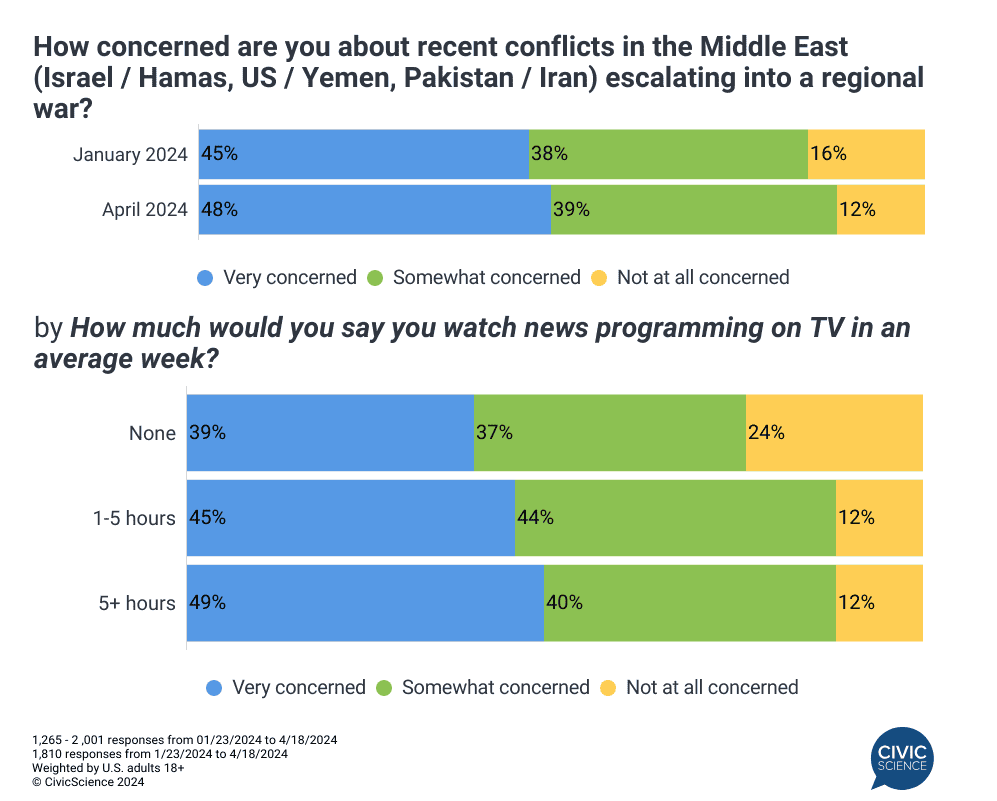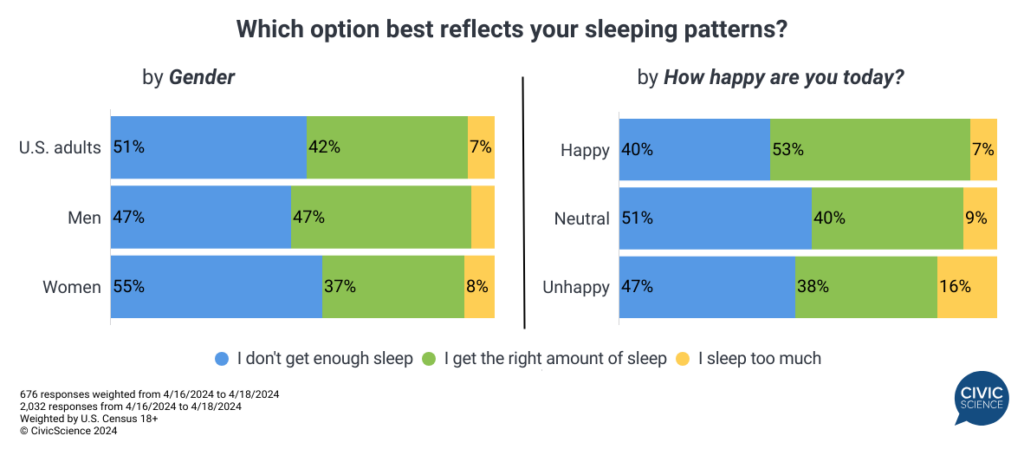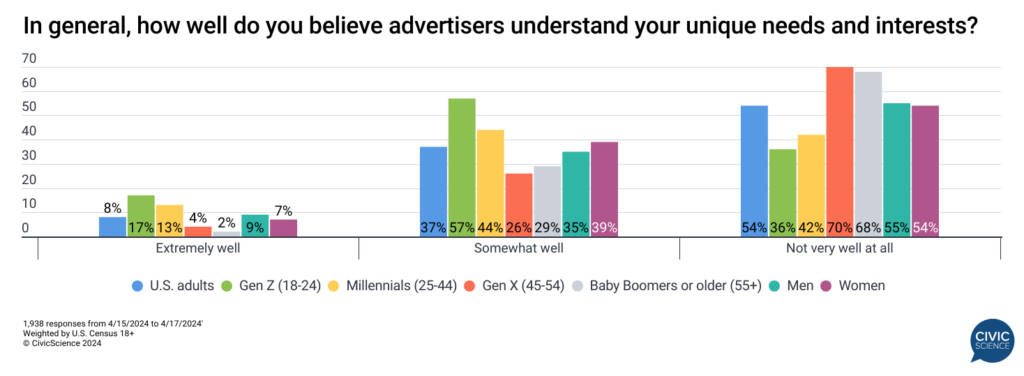CivicScience continually tracks current and anticipated consumer trends. Here are three key insights marketers should know this week. All insights are derived from the CivicScience Social | Political | Economic | Cultural (SPEC) Report, a weekly report available to clients covering the latest news and insights. Start here to learn more.
1. Nearly half of Americans are very concerned conflicts in the Middle East will escalate into full-scale regional war.
Last week, Iran launched a salvo of missiles at Israel in retaliation for the bombing of the Iranian embassy in Syria earlier this month. Israel has responded with action of its own. With tensions in the Middle East escalating, nearly half of American adults express deep concern about the burgeoning conflicts in the region, reflecting a three percentage point increase since January. Those who abstain from television news are twice as likely to report no concern whatsoever regarding the conflict.

2. The majority of Americans, led by women, say they’re not getting enough sleep.
U.S. adults are getting less sleep than ever before. A majority of U.S. adults say they do not get as much sleep as they need – and women are eight points more likely than men to report not getting enough sleep. Studies have shown the profound influence of poor sleep habits on mental health. Additional CivicScience data find respondents who report feeling unhappy are more likely to say they either don’t sleep enough or sleep too much.

Join the Conversation: Do you personally take melatonin sleep aids to help with sleep?
3. Many consumers believe advertisers don’t understand their unique needs and interests very well.
Fewer than half of Americans say they feel well-represented in advertising. Forty-four percent of U.S. adults report that most of the digital ads they see are at least ‘somewhat’ relevant to their interests, according to CivicScience data from earlier this year. New data show that a similar percentage (45%) believe that advertisers understand their unique needs and interests at least ‘somewhat well.’
Advertising also has an age problem. Gen X (aged 45-54) are the least likely to feel represented in advertising – 30% say advertisers understand their unique needs and interests compared to 74% of Gen Z adults who say the same.
Additionally, men (45%) are slightly less likely than women (46%) overall to feel understood in advertising, although they are more likely to feel ‘extremely well’ understood.

Take Our Poll: Do you feel like the ads you see on social media have become more or less relevant to your interests over the past year?
Clients receive the SPEC Report in full, plus access to real-time insights driven by our database of over 500K questions. Contact us now to see it in action.








